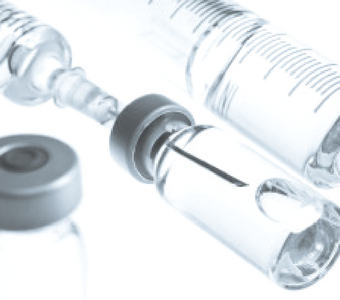In a move that management says will save the company more than $100M over the next three years, AVEO Oncology (NASDAQ:AVEO) cut its work force by 17% and made strategic shifts to lighten the R&D expenses of early-stage compounds. Management is trying to be as candid as possible going into 2013 as investor confidence waned this year and stock price dipped lower and lower, in fact setting a new 52-week low just this month. The expense cuts and visibility couldn’t be more pertinent as AVEO prepares for the commercial launch of tivozanib, a potential first-line treatment for Renal Cell Carcinoma (RCC). If approved, the drug will launch late next year.
The company finished the quarter with $189M in cash, equivalents, and short-term investments and expects to end 2012 with roughly $135M, which, says management, will last through next year. Management estimates, however, hinge on tivozanib’s approval, which will result in a substantial milestone payment from partner Astellas Pharma (OTC:ALPMY) and may allow recognition of some tivozanib revenue in the 4th quarter. That cash will be crucial in 2013 as the company moves from a developmental entity into commercialization. The company is already ramping up marketing efforts in advance of approval, bringing on industry veteran Brad Bailey as VP of Sales and creating an 80-member salesforce for the drug, for which Astellas will split expenses.
On Tuesday’s conference call, management reported that 80% of ongoing development will be focused on tivozanib, specifically by pursuing further indications in colorectal and breast cancer. Management also discussed changes to the company’s research and development programs. Ficlatuzumab development will proceed through “external” avenues, and development of AV-203 has not been cut, although management did not reveal the specifics of each program. While pipeline products may generate future value, investors have been predominantly focused on tivozanib and may even see ficlatuzumab’s possible out-licensing as a positive, allowing finances to shift to tivozanib’s late-stage trials and pursuit of new indications. While the RCC treatment segment is beginning to crowd, the market remains large. Pfizer’s (NYSE:PFE) Sutent leads the segment with $1.19B in 2011 worldwide sales, and if tivozanib can manage half of that conservatively, it supports a substantially higher valuation for AVEO. The stock currently trades at just 1.8x cash.
All that to say that AVEO’s future rests largely in the FDA’s evaluation of tivozanib. The company has repeatedly discussed the need for a treatment that produces a Progression Free Survival of more than 12 months (tivozanib demonstrated 12.7) with a favorable safety profile. AVEO has compared the drug in a head-to-head trial with Nexavar (sorafenib), from Onyx Pharmaceuticals (NASDAQ:ONXX), and the ongoing TAURUS trial compares tivozanib and Sutent (sunitinib). Reflected in Tuesday’s earnings call, however, were analyst concerns over tivozanib’s overall survival data. While tivozanib has repeatedly shown improved PFS and an excellent safety profile, overall survival rates were, in fact, worse than existing drugs. The company attributes some of this to a cross-over between arms of the TIVO-1 trial and submitted additional overall survival data with its NDA; further data will be available at ASCO GU in February. Whether or not the FDA will approve the drug based on PFS alone remains to be seen, but if it declines, commercialization will be pushed back significantly. Should tivozanib receive approval, however, upside potential is significant considering AVEO’s recent weakness, supported in-part by existing cash. AVEO submitted the tivozanib NDA in September, and the FDA should indicate an acceptance – or not – by the end of November, which will be a major determiner of near-term price action for AVEO.



